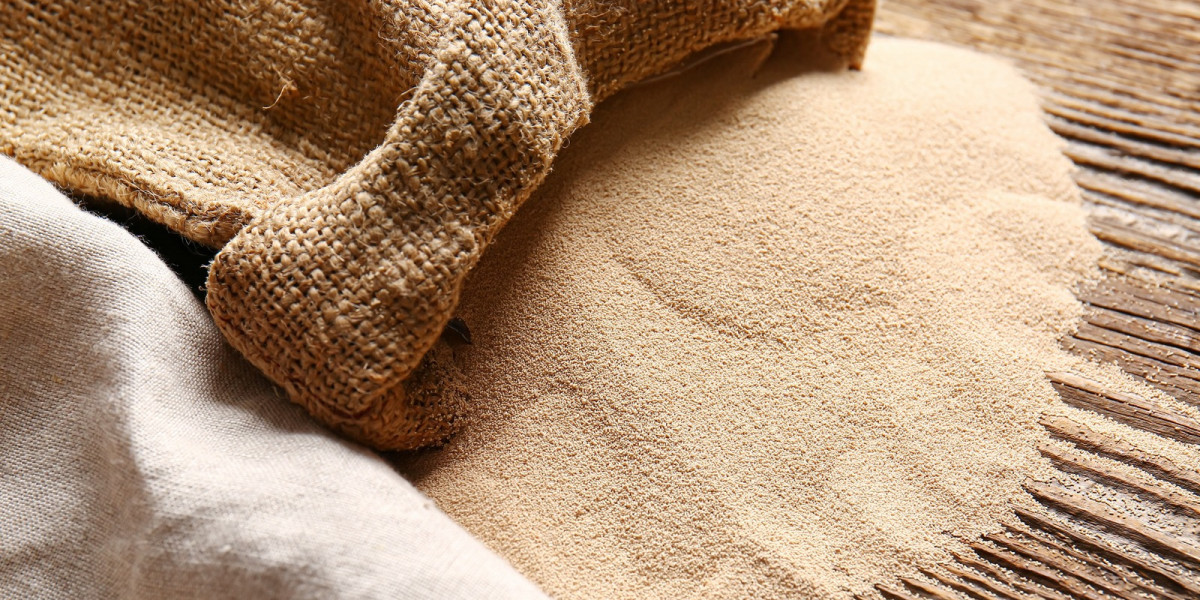The dry yeast market is rapidly evolving beyond its traditional applications in baking and brewing. With the rising consumer demand for natural, functional, and sustainable ingredients, dry yeast has found significant opportunities in the nutraceutical and cosmetics industries. Rich in essential nutrients like B vitamins, amino acids, minerals, and antioxidants, dry yeast is being recognized as a versatile bioactive component in health and beauty products.
This article explores the emerging applications of dry yeast in nutraceuticals and cosmetics, market drivers, key benefits, and future growth prospects through 2030.
Expanding Horizons: From Food to Wellness
Traditionally, dry yeast has been widely used in the food and beverage sector, especially in baked goods, alcoholic beverages, and savory products. However, as the health and wellness movement gains momentum, industries are exploring yeast’s nutritional value and biological properties to enhance product functionality in new ways.
What makes dry yeast attractive for wellness sectors?
High protein content
Rich in B-complex vitamins (including B1, B2, B3, B6, and B12)
Source of glutathione and selenium, known for antioxidant properties
Contains beta-glucans, known to support immune function
Safe, natural, and non-toxic
Applications in Nutraceuticals
The nutraceuticals market includes functional foods, dietary supplements, and fortified beverages—all of which seek ingredients that deliver health benefits beyond basic nutrition. Dry yeast is gaining traction in this space due to its bioavailability, natural origin, and wide array of health-promoting compounds.
Key Uses:
Immune Support Supplements
Yeast beta-glucans are being used in capsules and powders to enhance immune response, especially among aging populations.
Energy and Metabolism Boosters
Yeast-derived B vitamins are critical in converting food into energy and supporting nervous system health.
Protein Supplements
Nutritional yeast is used as a high-quality protein source in plant-based diets, especially in vegan and vegetarian products.
Gut Health Formulations
Some yeast strains are included in probiotic blends to improve digestive health and nutrient absorption.
Functional Beverages and Smoothies
Nutritional yeast powder is incorporated into energy drinks and protein shakes for added micronutrients.
Applications in Cosmetics
In the cosmetic and personal care industry, natural ingredients are in high demand due to consumer preference for clean-label, eco-friendly, and cruelty-free products. Dry yeast fits perfectly into this trend as a bioactive compound that nourishes skin and hair.
Key Benefits and Applications:
Anti-Aging and Skin Renewal
Yeast extracts contain antioxidants and peptides that help reduce oxidative stress and stimulate collagen synthesis, leading to firmer, youthful skin.
Moisturization and Barrier Repair
Yeast-based ingredients help maintain the skin's natural barrier and improve hydration, making them ideal for creams and serums.
Brightening and Even Skin Tone
Fermented yeast extracts promote cell turnover and can reduce hyperpigmentation, improving overall skin clarity.
Hair Care
B vitamins and amino acids from yeast strengthen hair, prevent breakage, and enhance scalp health, making it popular in shampoos and conditioners.
Sensitive Skin Formulations
Yeast components are gentle and non-irritating, making them suitable for hypoallergenic and dermatologically tested products.
Market Drivers and Trends
1. Consumer Shift Toward Natural Products
The clean beauty and health-conscious movements are driving demand for natural ingredients, where dry yeast offers a science-backed and sustainable solution.
2. Growth of Plant-Based and Vegan Lifestyles
As more consumers seek cruelty-free and vegan-friendly alternatives, yeast-derived ingredients offer plant-based nutrition and skin benefits.
3. Rise in Functional Foods and Personalized Nutrition
Dry yeast is being used in customized health solutions tailored to specific needs like energy, immunity, and skin health.
4. Innovation in Fermentation and Biotechnology
Advances in fermentation technology are enabling manufacturers to isolate and enhance specific bioactive components from yeast for targeted use in wellness products.
Regional Outlook
North America and Europe lead in adopting yeast-based nutraceuticals and cosmetics due to high health awareness and regulatory support for natural ingredients.
Asia-Pacific shows strong growth potential, with rising disposable incomes, beauty-conscious consumers, and increasing interest in natural remedies.
Latin America and MEA are emerging markets where yeast-derived supplements and skin care products are gradually gaining popularity.
Challenges and Considerations
Despite the promising outlook, there are some challenges:
Product standardization and regulation across regions
Sensory attributes such as taste and odor in supplements and cosmetics
Need for consumer education on the health benefits of yeast-based products
Supply chain constraints in sourcing specialty yeast strains
However, ongoing research and technological improvements are addressing these hurdles, paving the way for broader adoption.
Future Outlook
The dry yeast market is well-positioned to capitalize on the convergence of health, beauty, and natural ingredient trends. With continued innovation, strategic partnerships, and increasing consumer awareness, yeast is transitioning from a basic baking staple to a bio-functional superstar in both the nutraceutical and cosmetic sectors.
By 2030, the global demand for multi-functional, plant-based, and science-backed ingredients will further fuel the growth of yeast-derived solutions across wellness categories.
Conclusion
Dry yeast is undergoing a renaissance, driven by its powerful health benefits and compatibility with clean-label, sustainable formulations. As it finds a growing role in nutraceuticals and cosmetics, it offers brands a unique opportunity to meet the demands of the modern, health-conscious consumer. With the right investment in innovation and consumer education, dry yeast could become one of the most influential ingredients in the future of holistic health and beauty.








